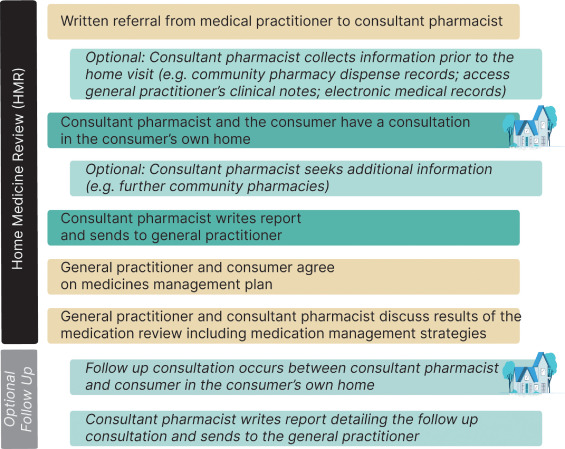

The Domiciliary Medication Management Review (DMMR), also named as a Home Medicines Review (HMR), [1] in an Australian scheme for the patients residing in community setting. [2] There are many steps included in a Home Medicine Review Service (Figure 1). [3]
Introduced in 2001 into the Medicare Benefits Schedule (MBS) as item 900, [4] it is aimed at preventative care.
Following an assessment of the patient's needs, a medication management plan is made.
Pharmacists must be credentialled as consultant pharmacists before they can be remunerated for Medication Management Reviews.